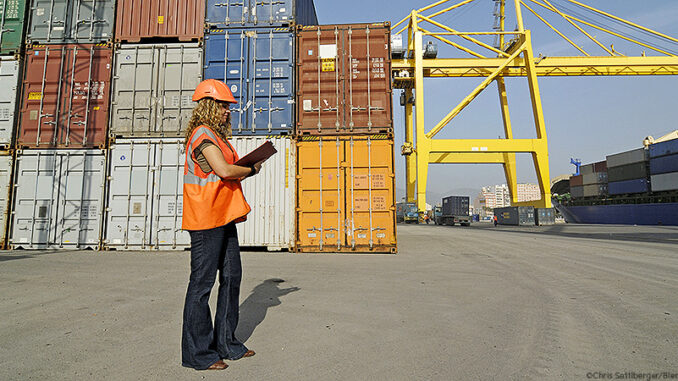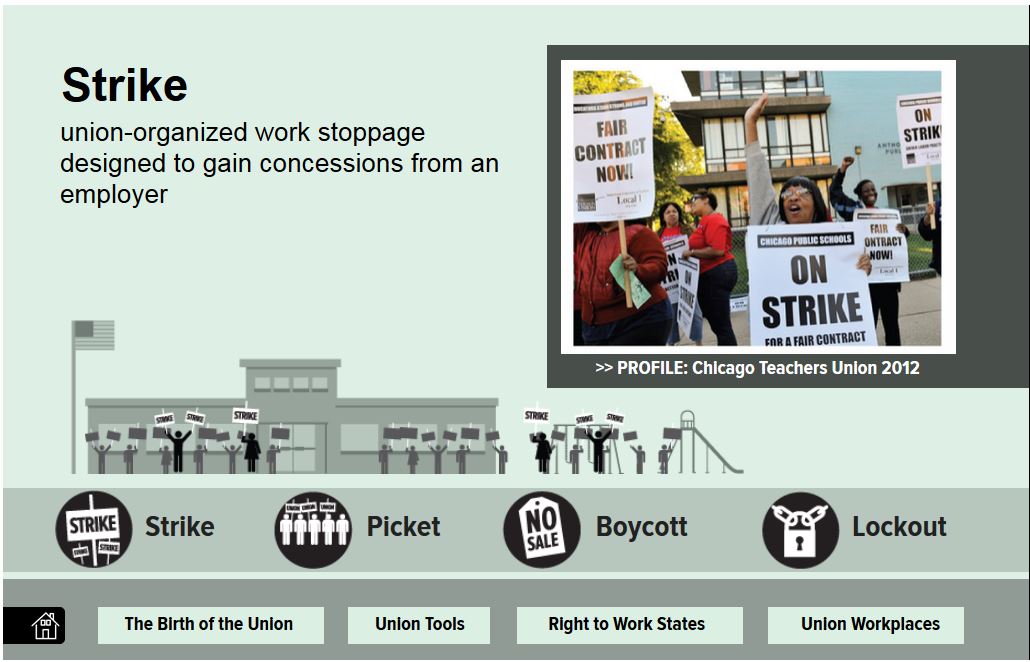
It is easy to take for granted how our goods make their way to us. That is, until something happens that grinds the process to a halt. This happened all along the West Coast as a nine-month old dispute involving dockworkers and shipping companies caused a major disruption in international trade. The ordeal recently ended in an agreement, but many are left to deal with the impact and determine how to deal with future disputes.
What is a Union?

The Industrial Revolution caused a major shift in where and how people worked. More goods created in factories lead to a surge in demand. But the hours were often long, the pay inadequate, and the conditions very dangerous. Unions were created as a way to create a single voice to negotiate acceptable conditions, usually through a contract, called a collective bargaining agreement (CBA).
One of the most important rights a union has is the ability to strike. This is when workers stop working in protest to a particular issue, or set of issues, as a way to remind business owners of their importance. This is usually done at the same time representatives from both sides are in negotiations. An employer is required by law to engage with a union in order to resolve disputes.
West Coast Ports Dispute
The collective bargaining agreement between the International Longshore and Warehouse Union (ILWU) and the Pacific Maritime Association (PMA) expired on July 1, 2014. However, the two organizations had an “informal pact” in place in order to maintain a consistent flow of work. This understanding broke down when dockworkers at Long Beach Harbor in Los Angeles walked off the job in support of a small group of un-unionized port truckers. The months that followed included a forced order for workers to return, accusations of a deliberate slow-down of the workers, and eventual lockouts by the port companies.
President Obama finally dispatched U.S. Labor Secretary Tom Perez to assist in the negotiations. The two parties reached a final agreement on February 20. Neither party would release specific details of the new contract. However, one of the last sticking points in the negotiations centered on arbitration. Arbitrators are third parties hired to routinely used in labor disputes as a way to settle differences impartially. The ILWU wanted the authority to fire arbitrators during disputes. In the new contract, future grievances will be heard by a panel instead of one individual.
Impact
Twenty-nine seaports stretching from Seattle, Washington to Southern California were included in the shutdowns. Collectively, they handle approximately a billion dollars of cargo every day. The industries affected are transportation, manufacturers, retailers and agriculture. Those with perishable goods were hit the hardest. Massive boats carrying shipping containers are still backed up in harbors. Authorities estimate that it will take four-to-eight weeks to catch up.

